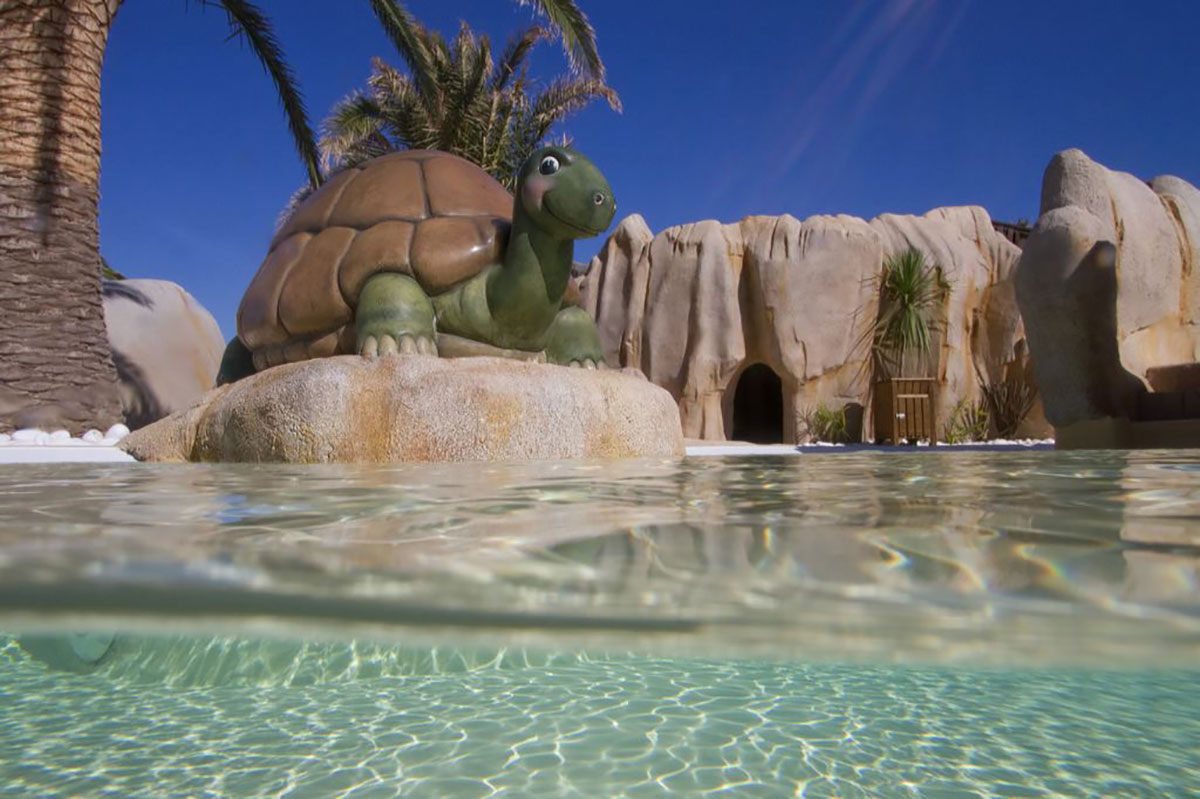Magnesium is the seventh (or eighth, according to various sources) most abundant element in the earth’s crust. It is also, after iron, oxygen and silicon, the fourth most common element in the earth, making up 13% of its mass. Of the elements dissolved in seawater, it is the third most common after sodium and chlorine. Among metals, it is the third most abundant in the earth’s crust, second only to iron and aluminium. At standard temperature and pressure, magnesium is never found in its free metallic form, but forms part of various minerals and chemical compounds, mostly oxides and salts. Magnesium is therefore an abundantly available element that is easy to extract. But this is only one of the advantages that make its use advisable for the purification of swimming pool water, in the form of magnesium chloride salt, whether they are private pools or belong to water parks, campsites, hotels and resorts or other leisure and tourism facilities. Let’s see how and why.
In general terms, the magnesium chloride water purification system is based on the chemical reactions that occur when these salts are subjected, on the one hand, to electrolysis (a process that separates the elements of the chemical compound by means of electricity) and, on the other hand, the resulting magnesium is subjected to hydrolysis. The by-products of these two processes are chlorine ions in the case of electrolysis and magnesium hydroxide in the case of hydrolysis. The water is purified and cleaned by the effect of these by-products in combination with the pool’s filtration system. Chlorine ions are released into the pool water and kill bacteria, fungi and algae in a disinfecting effect. Magnesium hydroxide, on the other hand, acts as a flocculant. Thanks to it, the dirt particles suspended in the water are grouped together and form larger agglomerates and are therefore more easily trapped by the filtration system.

The advantages of water treatment with magnesium salts in private pools, water parks, campsites, hotels, resorts or other aquatic facilities are numerous. Firstly, the chlorine produced by the process is less corrosive to pool pipes and equipment than traditional chlorine, which means longer life and reduced maintenance requirements for the installation. Secondly, the process of producing this type of chlorine reduces by 40% the development of chloramines, which are responsible for the unpleasant odour characteristic of conventional chlorine treatment. It also has the added environmental advantage of reducing the use of chemical products and providing nutritious and healthy minerals for plants.

As a result, it is generally safer for living organisms and the environment than the traditional system. In fact, the backwash water can even be used to irrigate landscaped areas. As for the effect on bathers, bathing in pools with dissolved magnesium salts is relaxing, soothes the skin and hair, does not irritate the eyes or mucous membranes and also has important benefits for muscles and tendons, as well as the immune and circulatory system.
Notwithstanding all of the above, it is still necessary to regularly check the chlorine level in the water of pools treated with magnesium salts. All in all, the magnesium chloride-based treatment system guarantees crystal clear, pure water that is safe for health and the environment, and is more sustainable, environmentally friendly and less costly than the traditional chlorination system.
Sources: Sales del Centro, National Geographic, Hidro Vinisa, Wikipedia 1, Wikipedia 2, Wikipedia 3.






